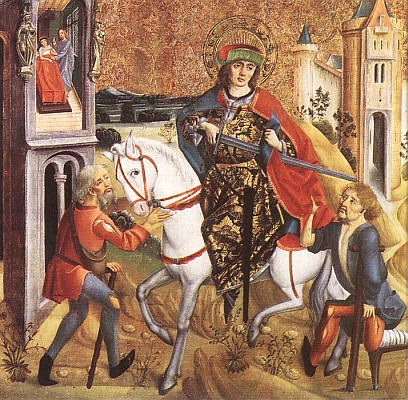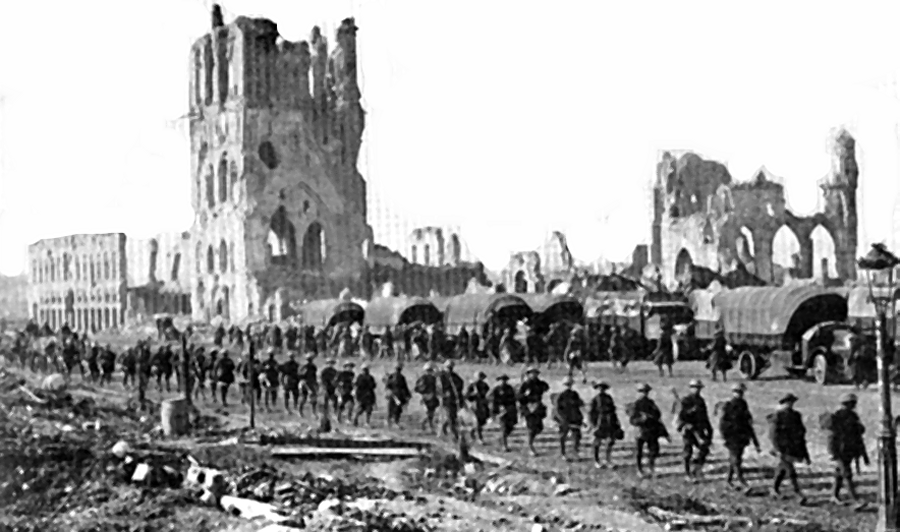Feast Day of St Martin of Tours
St Martin, born c. 316, was a Christian soldier in the army of the Roman Empire, known for his charity. He is famous for having cut his military cloak in half to share with a freezing beggar. After leaving the army he became a hermit in Gaul but was compelled by townsfolk in Tours to become the local bishop. He evangelized widely and established a monastery where monks would later develop the handwriting known as Carolingian miniscule, a wonderfully readable improvement on earlier hands. St Martin’s burial site drew thousands of pilgrims and became a rich shrine, the target of a Muslim raid from Spain in 732. Because of his cloak, he is the patron saint of tailors; because cackling geese gave him away when he attempted to hide from the summons to be a bishop, goose is traditionally eaten on his feast. His cult was always favoured by the French monarchy and so he is also a patron of France.
1918
The end of World War I, the worst armed conflict in human history to that time. Even in its early stages there were strong religious motivations for the war with each side claiming divine sanction. German equipment carried the motto “Gott Mit Uns”; the Turkish emperor in his role as Caliph declared the war a jihad and called on Muslims in the French, British and Russian empires to rise up against their rulers; Russians declared that the German Kaiser was the Antichrist; evangelist Billy Sunday characterized the war as “Germany against America, hell against heaven.” Millions of troops in every army believed themselves to be crusaders of a sort. The war was conducted savagely, destroying countless churches – the ruin of the great Gothic cathedral in Ypres became a symbol of the horror of the Western Front. It did not spare the noncombatant; France alone lost 5,000 military chaplains in the fighting; Belgian and Russian nuns were raped; Cossacks pillaged villages on the Eastern Front; Armenian Christians suffered a genocide at the hands of the Turkish army. Religions seemed capable of supporting the violence but not restraining it. The religious consequences of the war were profound. It led to the Russian Revolution which gutted the Orthodox Church and instituted an atheist regime; the defeat of the Ottoman Empire led to the destruction of the Caliphate; hideous new secular faiths such as fascism and Bolshevism replaced Christianity in the hearts of many disillusioned veterans.

